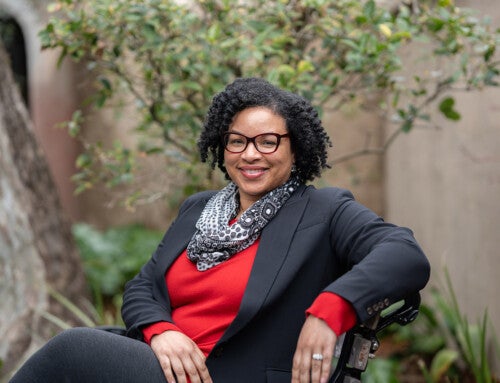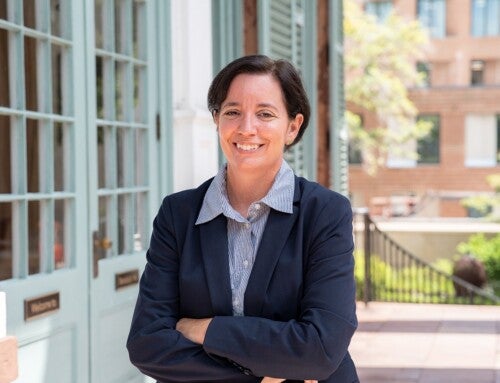 We all have learned a lot this semester: how to be flexible when it comes to our teaching techniques and methods; how to adapt lesson plans, lectures and testing for e-learning; and how to be prepared for swift and unexpected change. Because, ready or not, online education is our new reality.
We all have learned a lot this semester: how to be flexible when it comes to our teaching techniques and methods; how to adapt lesson plans, lectures and testing for e-learning; and how to be prepared for swift and unexpected change. Because, ready or not, online education is our new reality.
Of course, the reality is that online education is nothing new. In fact, the Teaching and Learning Team (TLT) has been offering College of Charleston faculty an Online Education (OE) Readiness Course (formerly known as the Distance Education [DE] Readiness Course) since spring 2012. Traditionally offered every spring, summer and fall as one of the prerequisites for teaching online at the College of Charleston, the OE Readiness Course is a seven-week, asynchronous online faculty development program that covers both the pedagogical and technological aspects of distance education.
“The College of Charleston is committed to cultivating a learner-focused culture that furthers the academic experience of students,” says Chris Meshanko, OE training and development coordinator with the TLT. “In addition to cultivating the technological skills needed for creating, managing and facilitating a successful online course, faculty will explore instructional strategies that construct and facilitate a learner-centered approach to distance education. Another benefit of the course is that they experience distance education as a student.”
With research-based lessons covering course design, communication, community building, assessment and content delivery, the course allows participants to spend time in each module, formulating content for their personal courses.
Participants in the OE Readiness Course usually spend five to seven hours a week working on the assignments and readings and are expected to log into the course in OAKS at least four days a week to stay current with coursework, as well as to regularly communicate with their mentors and interact with their peers on the discussion board.
However, during this unexpected e-learning period caused by the COVID-19 pandemic, TLT is ensuring that all faculty members can learn the skills they need for distance education. So, in addition to the traditional OE Readiness Course, TLT is offering abbreviated on-demand versions of the course this spring and summer. The College’s e-learning period of online-only courses will continue through the summer semester.
“We are currently helping to prepare faculty to offer their summer courses online, and will continue to work with them should we have to continue teaching and learning remotely in the fall,” says Zach Hartje, deputy chief information officer for CofC’s Division of Information Technology. “This is the perfect time for faculty members to take the time to learn from one another, too.”
Learning from one another is one aspect of the traditional OE Readiness Course, too: Its mentorship program allows participants to work with faculty mentors who have graduated from the course and successfully taught online at the College.
To date, there are 418 faculty graduates. Among them is Lancie Affonso ’96, an instructor in the Department of Computer Science.
“I was fortunate enough to come back as a mentor, and so I use the mentorship experience to redesign my course every single time. I’ve done this probably five times in a row, so that helps me be more disciplined and learn about the new tools that come in each time the course is redesigned. It’s a continuous learning process,” he says. “Distance education is changing drastically from year to year, and I think as faculty, we owe it to our students to at least tune in and see what works and repurpose and reorganize our course occasionally.”
Graduates of the program agree that the course allows faculty not just to learn technological skills, but also to get creative and really reflect on their approaches to teaching and assessment – and not just online.
“One of my favorite parts about the DE class was the impact that it had on my face-to-face classes,” says Michelle Futrell ’92, director of the Center for Academic Performance and Persistence and senior instructor of nutrition in the Department of Health and Human Performance. “In addition, the assessments I use in my face-to-face classes are much more authentic than they used to be. I’ve kind of fallen away from using so many objective multiple choice true/false questions to using more problem-based learning.”
“Being a student in the DE training course gave me a really good feeling for what it’s like to be a student in one of my DE courses – and, as a consequence of that, I have really learned to appreciate the necessity of being very organized and very clear, because of how easy it is to get lost online,” says Idee Winfield, professor in the Department of Sociology and Anthropology. “The use of a lot of the technologies has really helped me to make sure that my students have an easier time.”
The summer 2021 OE Readiness Course runs from June 23 to August 13, 2021, and applications are due April 26, 2021. Before applying, faculty should review the policies set forth by academic affairs, the Distance Education Task Force and the Distance Education Steering Committee.
To apply for the summer 2021 OE Readiness Course, complete the application on TLT’s blog by April 26, 2021. To apply to become a OE Faculty Mentor, complete this application. Questions may be directed to Chris Meshanko.




